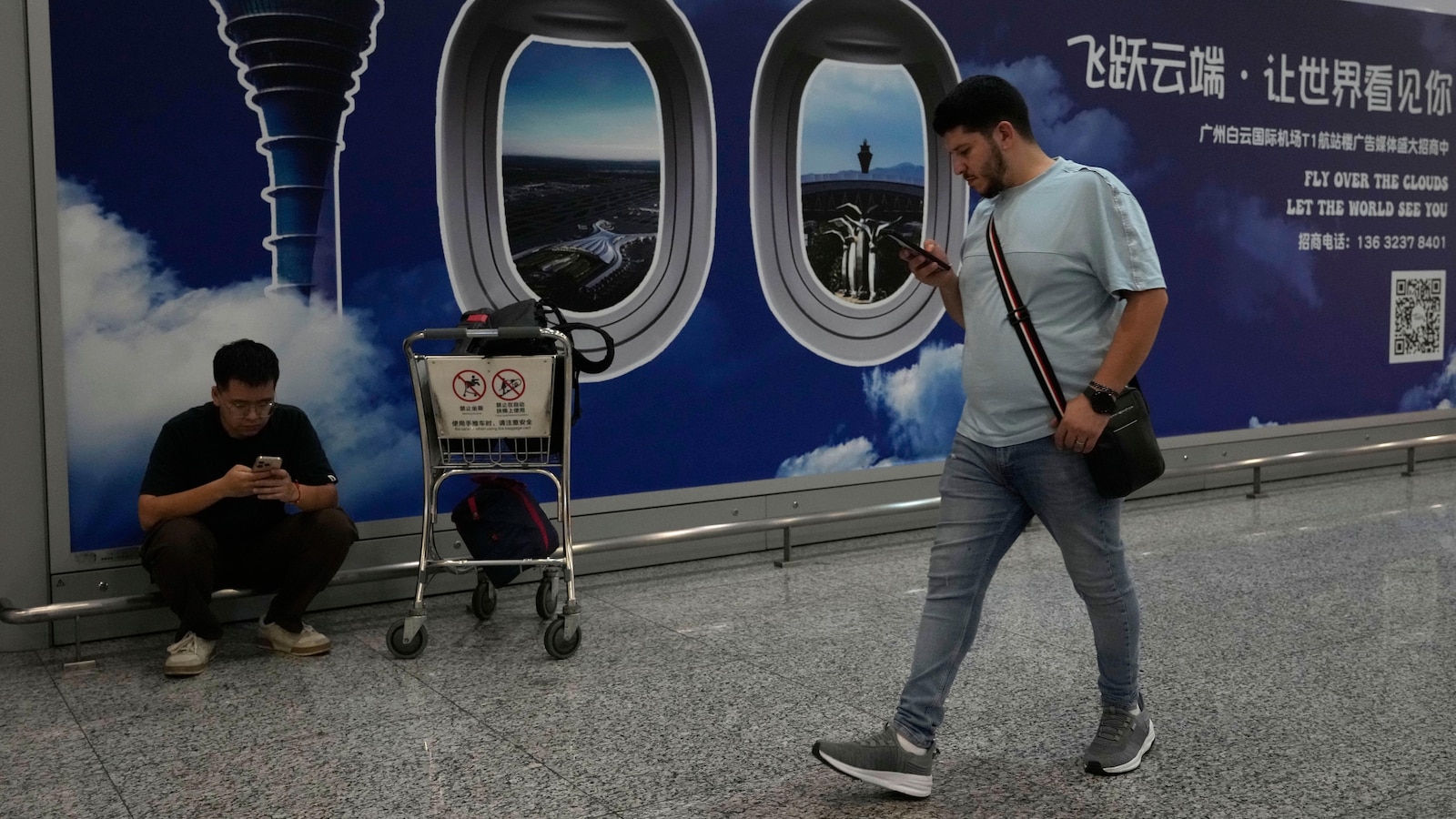KUJ, IFJ hold workshop on young journalists and trade unions – International Federation of Journalists – IFJ

Report on the Kenya Union of Journalists’ Initiative to Empower Young Media Professionals
Executive Summary: Advancing Sustainable Development Goals through Unionisation
A workshop organised by the Kenya Union of Journalists (KUJ) highlighted strategic efforts to integrate young journalists into the union, directly contributing to the achievement of key United Nations Sustainable Development Goals (SDGs). The initiative focuses on strengthening labour rights, promoting decent work, and ensuring the vitality of democratic institutions, aligning with SDG 8 (Decent Work and Economic Growth) and SDG 16 (Peace, Justice and Strong Institutions).
Strategic Recruitment and its Impact on SDG 8
The KUJ has prioritised the recruitment of young journalists, particularly those in the expanding digital media sector. This strategy is a direct response to the evolving media landscape and serves as a critical mechanism for promoting decent work.
- Union Growth: The Labour Secretary of the KUJ, Comrade Silus Kiragu, reported significant success in recruiting young journalists over the past three years.
- Collective Bargaining: The union has successfully negotiated and signed collective bargaining agreements with major international and local media organisations, including the BBC, RFI, and the Kenya Broadcasting Corporation (KBC).
- Contribution to SDG 8: These agreements are fundamental to achieving Target 8.8 of the SDGs, which aims to protect labour rights and promote safe and secure working environments. By ensuring fair wages and conditions through collective action, the KUJ actively promotes decent work for the next generation of journalists.
Youth Empowerment for Stronger Institutions (SDG 16)
The International Federation of Journalists (IFJ) emphasised the indispensable role of young members in ensuring the long-term sustainability and relevance of trade unions. Strong unions are a component of the strong institutions required by SDG 16.
- Modernising Strategy: Pa Louis Thomasi, Director of the IFJ Africa Office, advocated for moving beyond traditional recruitment methods. He stressed that young journalists are best positioned to engage and recruit their peers, especially within the online media space.
- Building Institutional Strength: By empowering young journalists to act as ambassadors, the KUJ strengthens its capacity as an institution. A robust union is essential for safeguarding press freedom, which is a cornerstone of Target 16.10, ensuring public access to information and protecting fundamental freedoms.
Legal Frameworks for Decent Work and Fundamental Rights
The workshop provided comprehensive training on the legal instruments that protect journalists’ rights, reinforcing the principles of both SDG 8 and SDG 16.
Constitutional and International Labour Standards
Trade union expert Comrade Anthony Githinji outlined the legal basis for union participation, guiding participants through critical national and international laws.
- National Law: Article 41 (2) of the Kenya Constitution guarantees every worker the right to fair remuneration, reasonable working conditions, and the right to form, join, or participate in trade union activities.
- ILO Conventions: Key International Labour Organization standards were highlighted, including:
- Convention 87: Freedom of Association and Protection of the Right to Organise.
- Convention 98: The Right to Organise and Collective Bargaining.
- Convention 155: Occupational Safety and Health.
This legal education empowers young journalists to claim their rights, contributing to a workforce that is secure and protected, in line with the objectives of SDG 8. The right to associate is also a fundamental freedom protected under SDG 16.
The Imperative of Formal Employment Contracts
KUJ Legal Adviser Ibrahim Oduor addressed the prevalence of precarious work among young journalists. He emphasised that demanding a formal employment contract is a critical first step upon entering the profession. This practice is essential for formalising employment, a key aspect of the decent work agenda under SDG 8, as it provides legal protection and access to social benefits, reducing worker vulnerability.
1. Which SDGs are addressed or connected to the issues highlighted in the article?
SDG 8: Decent Work and Economic Growth
- The article focuses extensively on labor rights, the role of trade unions (KUJ), fair working conditions, and employment for young journalists. These are central themes of SDG 8, which aims to promote sustained, inclusive, and sustainable economic growth, full and productive employment, and decent work for all. The discussion around collective agreements, fair remuneration, and reasonable working conditions directly aligns with the goal of achieving decent work.
SDG 16: Peace, Justice and Strong Institutions
- The article mentions the union’s role in “safeguarding press freedom” and references legal frameworks like the Kenya Constitution and the Employment Act. SDG 16 is dedicated to promoting peaceful and inclusive societies, providing access to justice for all, and building effective, accountable, and inclusive institutions. A free press and strong, independent unions like the KUJ are considered vital institutions for ensuring justice, accountability, and the protection of fundamental freedoms.
2. What specific targets under those SDGs can be identified based on the article’s content?
Targets under SDG 8: Decent Work and Economic Growth
- Target 8.5: By 2030, achieve full and productive employment and decent work for all women and men, including for young people and persons with disabilities, and equal pay for work of equal value.
The article’s emphasis on the “recruitment of young journalists” and the union’s efforts to secure “collective agreements” with media houses like the BBC, RFI, and KBC directly relates to achieving productive employment and decent work for young people entering the profession. - Target 8.8: Protect labour rights and promote safe and secure working environments for all workers…
This is the most prominent target. The article explicitly mentions the fundamental right to “form, join or participate in trade union activities” as guaranteed by the Kenya Constitution and ILO Conventions 87 and 98. It also highlights the importance of “reasonable working conditions,” “fair remuneration,” the need for employment “contracts,” and “Occupational Health and Safety” (ILO Convention 155), all of which are core components of protecting labor rights and ensuring safe work environments.
Targets under SDG 16: Peace, Justice and Strong Institutions
- Target 16.10: Ensure public access to information and protect fundamental freedoms, in accordance with national legislation and international agreements.
The article states that a role of the union is “safeguarding press freedom.” Press freedom is a fundamental freedom essential for ensuring public access to information. The work of journalists, supported by their union, is critical to achieving this target. The reference to the Kenyan Constitution and ILO conventions also underscores the importance of national legislation and international agreements in protecting these freedoms.
3. Are there any indicators mentioned or implied in the article that can be used to measure progress towards the identified targets?
Indicators for SDG 8 Targets
- Indicator 8.8.1: Frequency rates of fatal and non-fatal occupational injuries, by sex and migrant status.
This is implied by the specific mention of “ILO Convention 155 on Occupational Health and Safety.” Training journalists on this convention suggests an effort to monitor and improve safety, which is what this indicator measures. - Indicator 8.8.2: Level of national compliance with labour rights (freedom of association and collective bargaining) based on International Labour Organization (ILO) textual sources and national legislation.
The article directly refers to the legal basis for this indicator by citing “Article 41 (2) of the Kenya Constitution” and “ILO Conventions 87 and 98.” Furthermore, the successful signing of “collective agreements” is a tangible outcome and a direct measure of the exercise of collective bargaining rights.
Indicators for SDG 16 Targets
- Indicator 16.10.1: Number of verified cases of killing, kidnapping, enforced disappearance, arbitrary detention and torture of journalists, associated media personnel, trade unionists and human rights advocates…
This is implied by the union’s stated role in “safeguarding press freedom.” Protecting press freedom inherently involves protecting journalists from threats and violence, which this indicator tracks. The indicator’s inclusion of “trade unionists” also makes it highly relevant to the article’s context. - Indicator 16.10.2: Number of countries that adopt and implement constitutional, statutory and/or policy guarantees for public access to information.
The article’s reference to “Article 41 (2) of the Kenya Constitution” and the “Employment Act” serves as evidence of the implementation of constitutional and statutory guarantees that protect the fundamental freedoms of workers, including journalists who are essential for public access to information.
4. Table of SDGs, Targets, and Indicators
| SDGs | Targets | Indicators |
|---|---|---|
| SDG 8: Decent Work and Economic Growth |
8.5: Achieve full and productive employment and decent work for all, including for young people.
8.8: Protect labour rights and promote safe and secure working environments for all workers. |
8.8.1: (Implied) Frequency rates of fatal and non-fatal occupational injuries, referenced via ILO Convention 155 on Occupational Health and Safety.
8.8.2: (Mentioned) Level of national compliance with labour rights (freedom of association and collective bargaining), referenced via Kenya Constitution Article 41(2), ILO Conventions 87 & 98, and the signing of collective agreements. |
| SDG 16: Peace, Justice and Strong Institutions | 16.10: Ensure public access to information and protect fundamental freedoms, in accordance with national legislation and international agreements. |
16.10.1: (Implied) Number of verified cases of killing, kidnapping… of journalists, associated media personnel, trade unionists… implied by the union’s role in “safeguarding press freedom.”
16.10.2: (Implied) Number of countries that adopt and implement constitutional, statutory… guarantees for public access to information, implied by references to the Kenya Constitution and Employment Act protecting journalists’ rights. |
Source: ifj.org

What is Your Reaction?
 Like
0
Like
0
 Dislike
0
Dislike
0
 Love
0
Love
0
 Funny
0
Funny
0
 Angry
0
Angry
0
 Sad
0
Sad
0
 Wow
0
Wow
0













































































